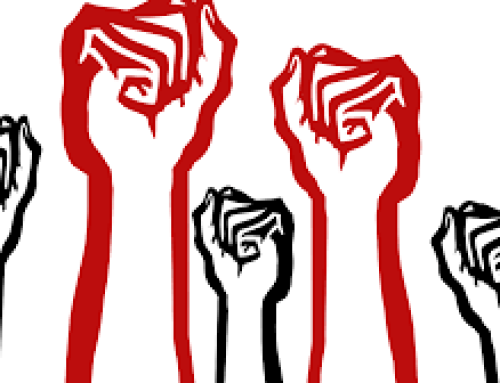It’s been an exhilarating and challenging year as President of AFSA as I’ve worked with an amazing team of committed fair food activists to further the interests of food sovereignty in Australia.
Part of the focus for the five-year-old Alliance this year has been to improve our internal operations with clearer processes for decision making and communications, and better financial management. I am delighted to be finishing the year with a surplus and a healthy bank account, largely thanks to the fundraising made possible by the Fair Food documentary screenings, DVD sales, and generous support from the City of Melbourne. As at the end of the 2014-15 financial year, the doco had profited AFSA $6,679.
Both the Fair Food doco and anthology edited by AFSA Secretary Nick Rose have greatly helped spread the word of the good work happening across the country as producers, chefs, connectors, knowledge workers, local governments, and activists build a new, fairer food system for all.
We have hopes of crowdfunding a second documentary focusing on the plight of farm and food workers in Australia, and how these systems of exploitation prop up the duopoly and concentration of power here and globally. Watch this space. 😉
The year has seen AFSA leading the fight for fair and consistent regulation of the food system, with participation at the Regrarians-led #EatBuyGrow rally a highlight. Speaking alongside lunatic farmer Joel Salatin on the many ways in which ‘folks, this ain’t normal’ and the need to contest the orthodoxy of industrial food was both an honour and a great opportunity to amplify the message locally.
We’ve worked to spread the word of the plight of dairy farmers in Victoria affected by the Government’s hasty decision to make it more difficult to sell raw milk, as well as the difficulties faced by livestock producers in processing and distributing their produce, especially in Victoria, where we’ve helped trigger a review of the meat regulator PrimeSafe (yet to report). I visited the Executive Director of the America Farm to Consumer Legal Defense Fund in Kentucky to learn how we might build such a fund here, and work is well advanced towards the establishment of a legal defence branch of AFSA.
I’ve already recounted the #epicfairfoodtour I made of the US in June, where AFSA’s food sovereignty relationships and networks were further developed with some of the most popular voices in the movement, including Joel Salatin, Temple Grandin, Dan Barber, and Michael Pollan.
Back home, I was delighted to host the inaugural Deep Winter Agrarian Gathering (conceived by fabulous farmer Fraser of Old Mill Bio Farm in NSW) in August with the able assistance of local Sarah Chignell. Two days of discussing the issues and opportunities in production, connection, regulation, and regeneration of the food system were heralded by fair food pioneer Costa Georgiadis as ‘the Woodstock of Australian agriculture’.
We recounted and plotted, feasted and posited, and frankly talked fair food ‘til the cows came home.
The high proportion of young farmers and future farmers attending was especially encouraging – just goes to show how much more appealing fair food farming is than industrial agriculture! I’m already looking forward to the next one (perhaps somewhere a tad warmer…)
In the first week of September I had the honour and privilege to attend the International Planning Committee for Food Sovereignty (IPC) meeting in Gujarat, along with my comrade Nick Rose. You can read our separate report on the outcomes of the meeting here. In short, the meeting clarified the need for AFSA to stand up to our own government in solidarity with our comrades in the Global South, to protect them as well as our own producers from the ravages of free-trade agreements that benefit nobody except large, transnational agribusiness.
The impact of cheap imports is devastating for farmers everywhere – from fruit growers in Victoria to small-scale beef producers in Kenya.
Our involvement with the IPC has also connected us to the ongoing dialogue with the Food & Agriculture Organisation (FAO) of the UN, where we can add our voice to the global movement for agroecology and the fight against industrial livestock production, amongst the many other issues.
In spite of the continued centralized control of our food system, especially by the duopoly Coles & Woolworths, and in spite of the burdens and unfairnesses of regulation for small-scale, transparent food production, and even in spite of the ongoing exploitation of the labour of farm and food workers across Australia, I feel hopeful.
I feel hopeful because more people are choosing to buy directly from farmers and leave the duopoly out of their shopping bag. I feel hopeful because we’ve got the regulators’ attention, and reform seems possible. I feel hopeful because of the work of Four Corners to expose the treatment of farm workers and the tireless work of the NUW to support workers everywhere.
I feel hopeful because I’m a tragic optimist who takes every tiny grain of hope and plants it deeply in the rich soil of this fecund movement.
I am especially grateful for the work and support of Secretary Nick Rose, Communications Officer Alana Mann, Memberships Officer Michele Lally and our wonderful intern Katarina Munksgaard, who have contributed tirelessly all year. Thank you also to Vice President Jeff Pow, Treasurer Nadine Ponomarenko, and Louise Abson for your contributions, and finally thank you to the members who resigned earlier in the year due to challenging circumstances, Clare Richards and Michael Croft. And of course thank you to long-term volunteers and co-founders of AFSA Russ Grayson and Fiona Campbell for your many years of work to build and support the movement through the website and AFSA communications with members.
So long as we all continue working together, we’ve got this. Here’s to another great year for the fair food movement!
Viva la revolucion!


